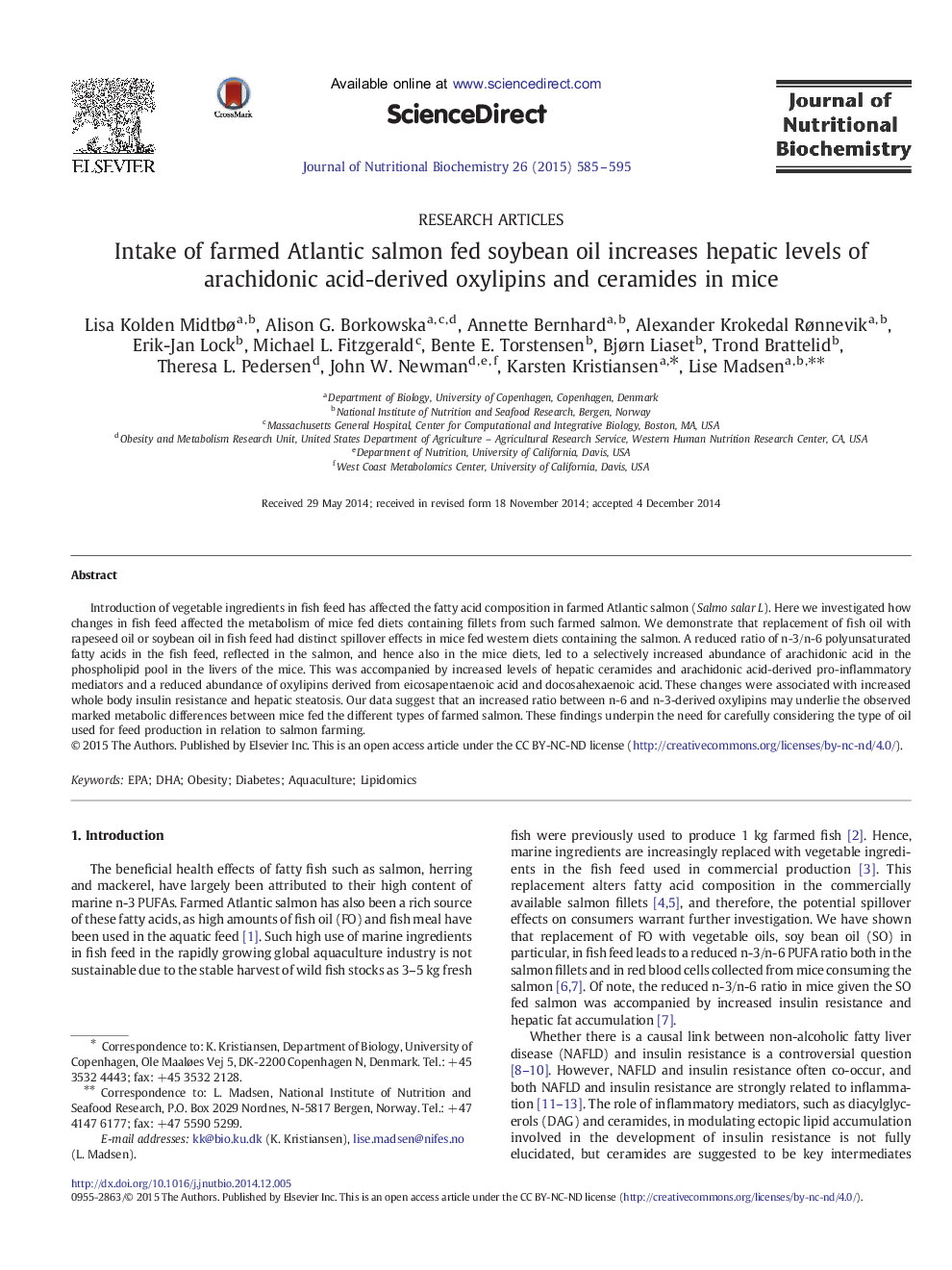| Article ID | Journal | Published Year | Pages | File Type |
|---|---|---|---|---|
| 8336932 | The Journal of Nutritional Biochemistry | 2015 | 11 Pages |
Abstract
Introduction of vegetable ingredients in fish feed has affected the fatty acid composition in farmed Atlantic salmon (Salmo salar L). Here we investigated how changes in fish feed affected the metabolism of mice fed diets containing fillets from such farmed salmon. We demonstrate that replacement of fish oil with rapeseed oil or soybean oil in fish feed had distinct spillover effects in mice fed western diets containing the salmon. A reduced ratio of n-3/n-6 polyunsaturated fatty acids in the fish feed, reflected in the salmon, and hence also in the mice diets, led to a selectively increased abundance of arachidonic acid in the phospholipid pool in the livers of the mice. This was accompanied by increased levels of hepatic ceramides and arachidonic acid-derived pro-inflammatory mediators and a reduced abundance of oxylipins derived from eicosapentaenoic acid and docosahexaenoic acid. These changes were associated with increased whole body insulin resistance and hepatic steatosis. Our data suggest that an increased ratio between n-6 and n-3-derived oxylipins may underlie the observed marked metabolic differences between mice fed the different types of farmed salmon. These findings underpin the need for carefully considering the type of oil used for feed production in relation to salmon farming.
Related Topics
Life Sciences
Biochemistry, Genetics and Molecular Biology
Biochemistry
Authors
Lisa Kolden Midtbø, Alison G. Borkowska, Annette Bernhard, Alexander Krokedal Rønnevik, Erik-Jan Lock, Michael L. Fitzgerald, Bente E. Torstensen, Bjørn Liaset, Trond Brattelid, Theresa L. Pedersen, John W. Newman, Karsten Kristiansen, Lise Madsen,
